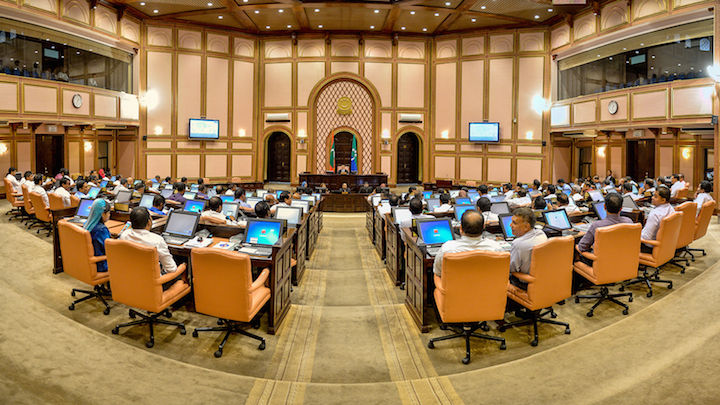Parliament passes slew of bills on sports, disasters, police oversight
The parliament passéd today three different bills on sports, disasters, oversight of law enforcement agencies, and amendments to the penal code

27 Aug 2015, 09:00
The parliament today broke for a one-month recess after passing three bills and amendments to the penal code at the last sitting of the second session of 2015.
Government-sponsored legislation on national disasters, sports, and establishing a national integrity commission, as well as changes to the new penal code were approved today.
At the end of today’s sitting, speaker Abdulla Maseeh Mohamed said the parliament finished work on 26 bills during the second session. The Majlis’ productively was 96 percent, he said.
The ‘National Integrity Commission’ will replace the Police Integrity Commission and the Customs Integrity Commission as a single oversight body for law enforcement agencies.
Become a member
Get full access to our archive and personalise your experience.
Already a member?
Discussion
No comments yet. Be the first to share your thoughts!
No comments yet. Be the first to join the conversation!
Join the Conversation
Sign in to share your thoughts under an alias and take part in the discussion. Independent journalism thrives on open, respectful debate — your voice matters.




